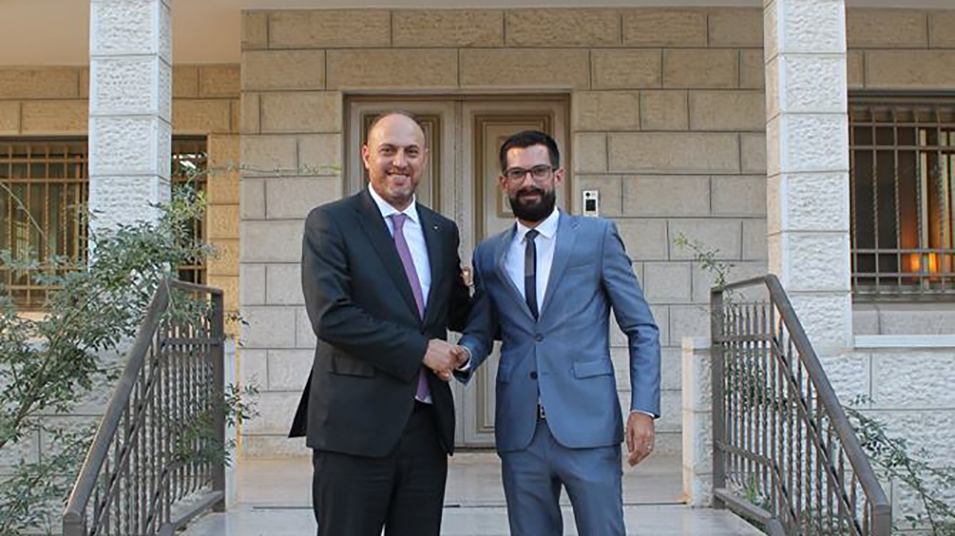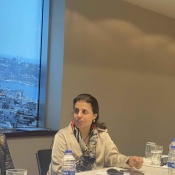Head of the PLO General Delegation to the US leads briefing on the future of Palestinian-American relations
The Birzeit School of Government, the Institute of Law at Birzeit University, and the Konrad-Adenauer-Stiftung in Palestine hosted today, Thursday, September 20, 2018, a political briefing on the future of the Palestinian-American relationships in light of the different American, pro-Israel policies against some vital Palestinian issues like the closure of the PLO General Delegation in Washington, UNRWA's fund cut-off, and moving the US embassy to Jerusalem.
Head of the PLO General Delegation to the US Dr. Husam Zomlot shared with the audience his perspectives on the current situation and the future of the Palestinian relationship with the US administration. Dr. Zomlot explained that the current US administration can no longer play a mediation role in the Middle East peace process, due to its biased policy towards Israel. He stressed the importance of countering these American policies and defending the Palestinian internationally-endorsed rights through keeping a strong and steadfast stance, and not negotiating our rights.
Zomlot also highlighted the significant role that the new American generations play, mainly in the different universities and civil society organizations, and their capacity to make the change in the American society.
The political briefing was followed by a discussion with the participants.
The event was conducted by Birzeit School of Government, an institute that seeks to build the capacity of students and practitioners to lead in public sector institutions and apply evidence-based tools and best practice to contemporary problems in the Palestinian and Arab public sectors. The BSG will strive to become the center of policy debate and development in Palestine and beyond. The BSG focuses on four pillars: education/teaching, short and long term training, academic and policy oriented research, and public lectures.
Konrad-Adenauer-Stiftung is a German political foundation, affiliated with the Christian Democratic Union (CDU). The foundation supports local and global initiatives which continue to work towards a two-state solution. Since the establishment of our office, KAS has built up bilateral partner cooperations based on shared objectives, mutual trust and open channels of exchange and dialogue. The country office is currently working in the fields of the rule of law, energy security, strategic thinking, civil engagement, and dialogue programs.







